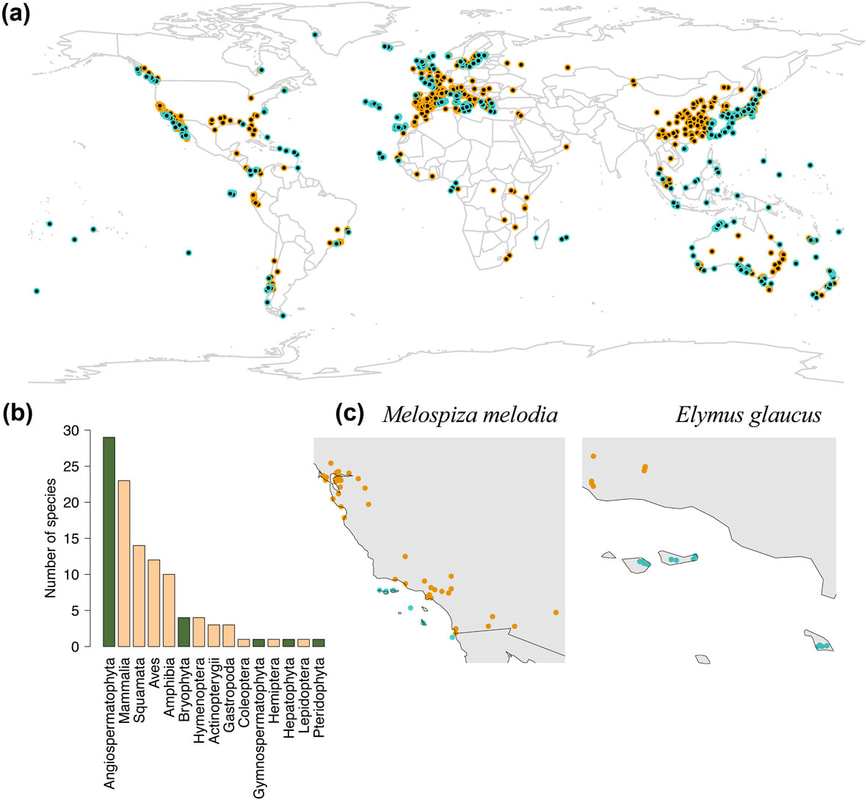Oct 2023: Island biogeography has provided an essential theoretical framework for understanding habitat loss and fragmentation on land. But to what extent do land-based 'islands' act like actual, oceanic islands?
This was the question we set out to answer in the Biogeography Discussion Group led by A/Prof. Anna Mária Csergő at Trinity College Dublin, back in 2017. Over the years, we compiled an analysed a huge database of published measurements of phenotypic traits and neutral genetic diversity from 1608 populations of 108 plant and animal species at a global scale.
We found that spatial phenotypic variability was higher between island populations than between mainland populations. This means that mainland populations are likely to benefit from higher connectivity between habitat patches compared to islands.
This was the question we set out to answer in the Biogeography Discussion Group led by A/Prof. Anna Mária Csergő at Trinity College Dublin, back in 2017. Over the years, we compiled an analysed a huge database of published measurements of phenotypic traits and neutral genetic diversity from 1608 populations of 108 plant and animal species at a global scale.
We found that spatial phenotypic variability was higher between island populations than between mainland populations. This means that mainland populations are likely to benefit from higher connectivity between habitat patches compared to islands.
Read the full paper here:
Csergő AM, Healy K, O'Connell DP, Baudraz MEA, Kelly DJ, Ó Marcaigh F, Smith AL, Villellas J, White C, Yang Q and Buckley YM (2023). Spatial phenotypic variability is higher between island populations than between mainland populations worldwide. Ecography, e06787
Csergő AM, Healy K, O'Connell DP, Baudraz MEA, Kelly DJ, Ó Marcaigh F, Smith AL, Villellas J, White C, Yang Q and Buckley YM (2023). Spatial phenotypic variability is higher between island populations than between mainland populations worldwide. Ecography, e06787
